-
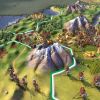 +34 +6
+34 +6What PC gamers can expect at E3 2016
Console gamers will spend the bulk of E3 drooling over new console updates. The PS4K and Xbox One Scorpio, as they’re currently known, are supposedly intended as mid-generation updates with 4K video playback, and improved performance. PC gamers have no such new hardware, or blockbuster announcements to froth over. The new video cards and processors were announced in the months leading up to E3.
-
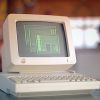 +19 +4
+19 +4How 1980s Computer Games Influenced Internet Culture
Pioneering virtual playspaces encouraged openness and creativity, which would later become foundational values of the web.
-
 +21 +3
+21 +3Smaller Chips May Depend on Vacuum Tube Technology
The future of computing may be in its past. The silicon transistor, the tiny switch that is the building block of modern microelectronics, replaced the vacuum tube in many consumer products in the 1970s. Now as shrinking transistors to even more Lilliputian dimensions is becoming vastly more challenging, the vacuum tube may be on the verge of a comeback.
-
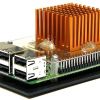 +1 +1
+1 +1Raspberry Pi 3: Extreme Passive Cooling
Mounting a large heat sink on a Raspberry Pi 3 using a copper plate spacer, thermal compound, and a custom mount. Then running some CPU temperature tests using a bash script.
-
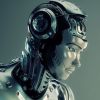 +20 +4
+20 +4The Myth of Sentient Machines
Some of today's top techies and scientists are very publicly expressing their concerns over apocalyptic scenarios that are likely to arise as a result of machines with motives. Among the fearful are intellectual heavyweights like Stephen Hawking, Elon Musk, and Bill Gates, who all believe that advances in the field of machine learning will soon yield self-aware A.I.s that seek to destroy us—or perhaps just apathetically dispose of us, much like scum getting obliterated by a windshield wiper. In fact, Dr. Hawking told the BBC...
-
 +2 +1
+2 +1Elon Musk believes we are probably characters in some advanced civilization's video game
By far the best moment of Recode's annual Code Conference was when Elon Musk took the stage and explained that though we think we're flesh-and-blood participants in a physical world, we are almost certainly computer-generated entities living inside a more advanced civilization's video game. Don't believe me? Here's Musk's argument in full...
-
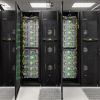 +14 +6
+14 +6Two-hundred-terabyte maths proof is largest ever
A computer cracks the Boolean Pythagorean triples problem — but is it really maths? By Michael Greshko. (May 26, ’16)
-
 +4 +1
+4 +1HP launches new Omen line of gaming laptops, desktops, and accessories
HP is getting back into the gaming world with a new line of products called Omen. The Omen series will feature laptops, desktops, and accessories targeted across different price ranges, from cheaper notebooks up to higher-end towers for serious gamers with a lot of disposable income. The line is kicking off today with the announcement of four products: two laptops, a tower, and a display. For the most part, these first products are starting toward the higher end of the market.
-
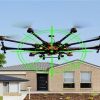 +2 +1
+2 +1Google to Increase Size, Frequency of Ads
Alphabet’s Google said it will increase the size of ads that run atop search results and expand ads on Google Maps in an effort to avert slowing revenue growth.
-
 +14 +1
+14 +1Not Just for Computer Nerds: 5 Reasons Linux is a Growing Business Trend
Linux has come out of oblivion, forcing itself onto the realms of digital climate. This article brings us closer to Linux in five ways.
-
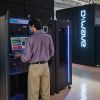 +21 +4
+21 +4Has the age of quantum computing arrived?
It’s a mind-bending concept with the potential to change the world, and Canadian tech company D-Wave claims to have cracked the code.
-
 +17 +3
+17 +3Chromebook + Android apps = Trouble for Windows PCs
Chromebooks are already outselling Macs. So Linus Torvalds is wondering if this really might be the year of the Linux desktop. With the addition of Android apps to the Chromebook, maybe it really will be.
-
 +8 +2
+8 +2Open source tool watches Linux systems, containers for suspicious activity
New from Sysdig, Falco alerts you to unwanted behaviors, not just in Docker apps, but throughout the system
-
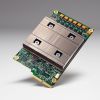 +38 +12
+38 +12Google's Tensor Processing Unit could advance Moore's Law 7 years into the future
Forget the CPU, GPU, and FPGA, Google says its Tensor Processing Unit, or TPU, advances machine learning capability by a factor of three generations. “TPUs deliver an order of magnitude higher performance per watt than all commercially available GPUs and FPGA,” said Google CEO Sundar Pichai during the company’s I/O developer conference on Wednesday.
-
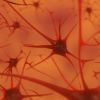 +48 +3
+48 +3Your brain does not process information and it is not a computer
Your brain does not process information, retrieve knowledge or store memories. In short: your brain is not a computer.
-
 +40 +6
+40 +6Soon We Won’t Program Computers. We’ll Train Them Like Dogs
Welcome to the new world of artificial intelligence. Soon, we won't program computers. We'll train them. Like dolphins. Or dogs. Or humans. Before the invention of the computer, most experimental psychologists thought the brain was an unknowable black box. You could analyze a subject’s behavior—ring bell, dog salivates—but thoughts, memories, emotions? That stuff was obscure and inscrutable, beyond the reach of science. So these behaviorists, as they called themselves...
-
 +6 +2
+6 +2Linux is the largest software development project on the planet.
Greg Kroah-Hartman discusses the inner workings of the massive development project that is Linux.
-
 +7 +2
+7 +2Primitive quantum computers are already outperforming current machines
Using a simple quantum circuit, constructed on a 2-qubit photonics quantum processor, the researchers were able to outperform classical computers in certain highly specialised problems.
-
 +16 +2
+16 +2Machines Won't Replace Us, They'll Force Us to Evolve
“We become what we behold. We shape our tools and then our tools shape us.” - John Culkin (based on Marshall McLuhan’s ideas) Something big is happening in design and engineering...
-
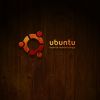 +8 +1
+8 +1Founder of Ubuntu Linux: No Back Doors; No Weakening of Encryption
As Microsoft continues its trend of converting Windows into an operating system of spyware, more and more computer users are discovering the security, privacy, and liberty of Linux. by C. Mitchell Shaw
Submit a link
Start a discussion




















